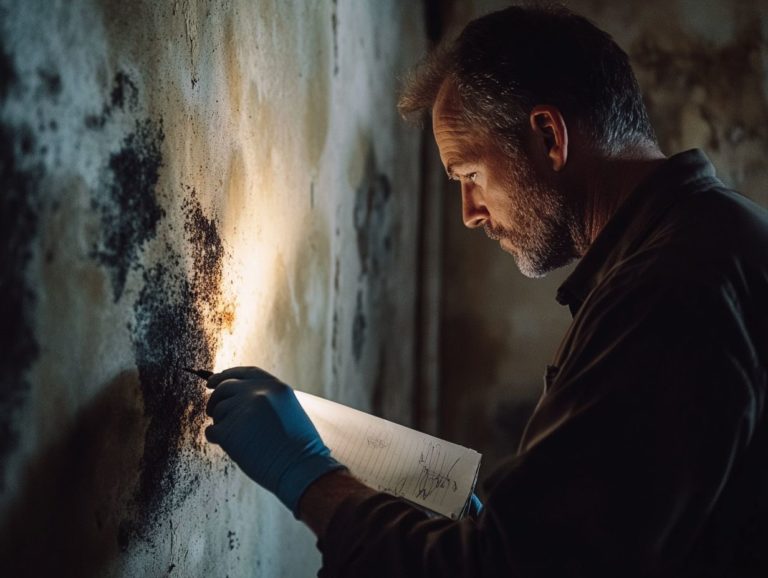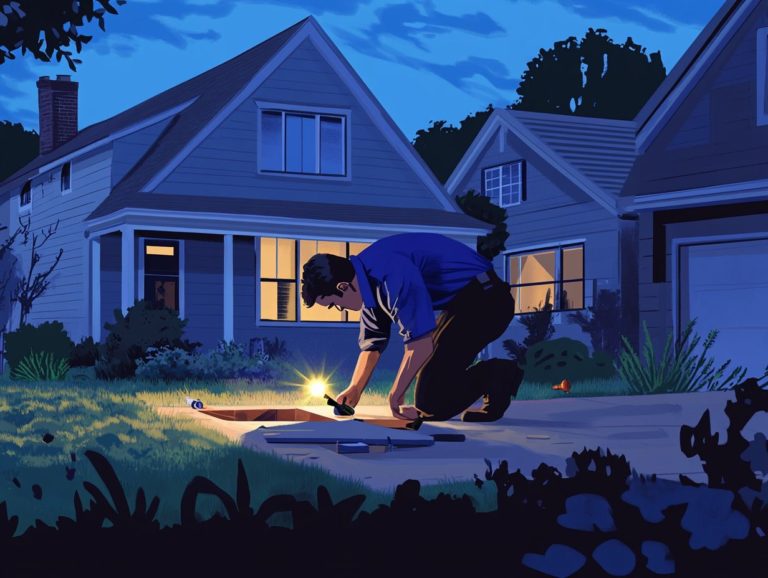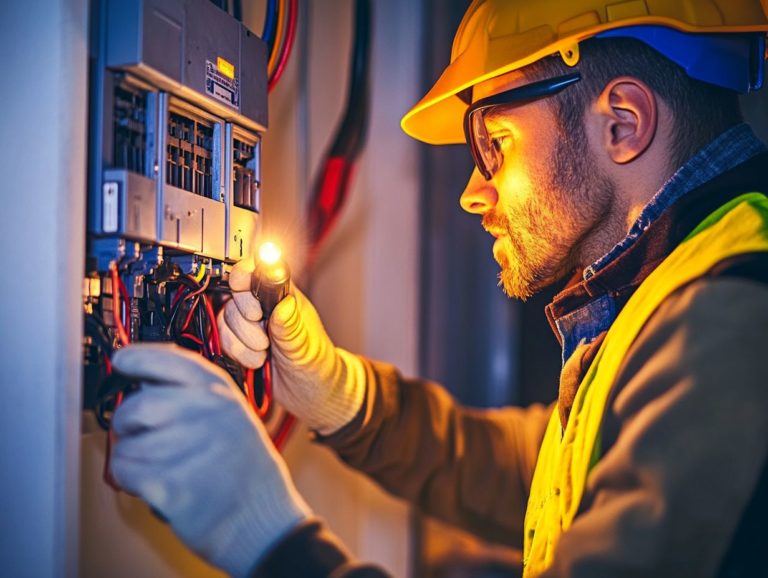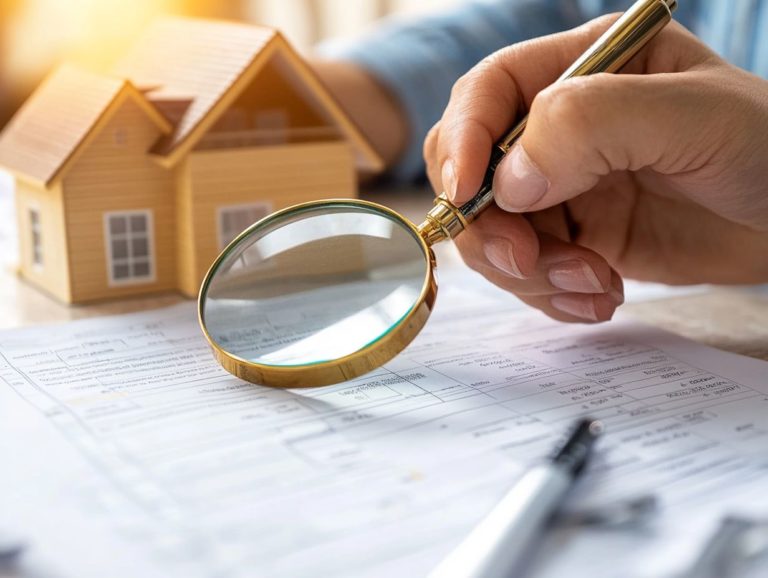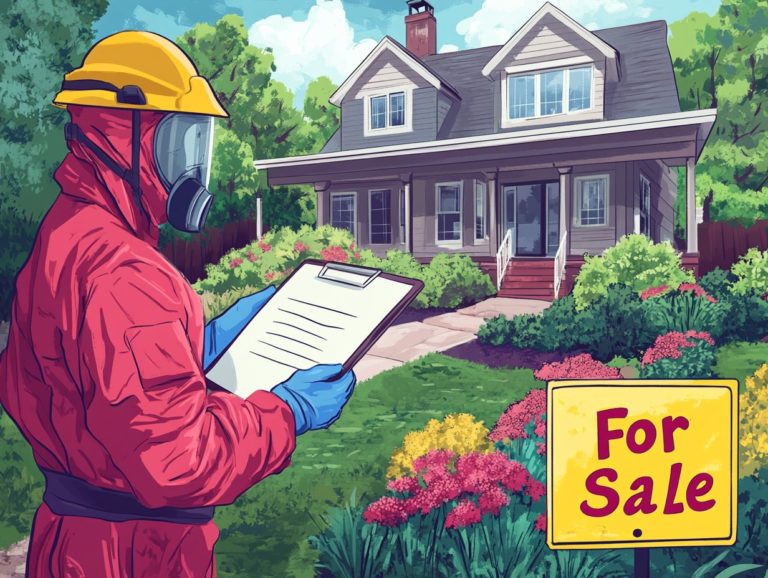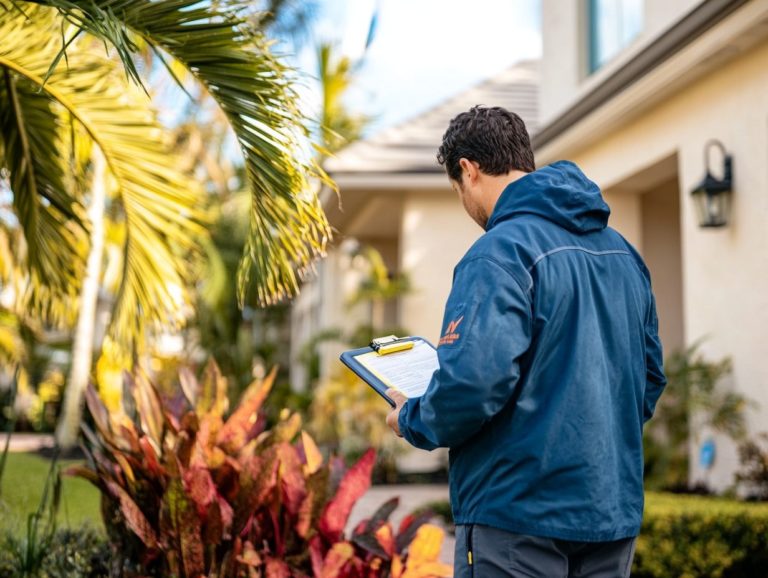The Importance of Thorough Home Inspections
Buying or selling a home marks a significant milestone in your life. Grasping the condition of the property is absolutely essential.
A home inspection is a crucial step in this journey, uncovering potential issues that could impact both the value and safety of your investment. This article delves into what a home inspection involves and highlights its importance for both buyers and sellers. You’ll discover common problems that inspectors often encounter, along with tips on how to prepare for a seamless inspection experience.
You will also find guidance on how to choose the right inspector and navigate the path forward after the inspection. Immerse yourself in this information to ensure you re fully equipped and prepared for your real estate journey!
Contents
- Key Takeaways:
- What is a Home Inspection?
- Why Home Inspections are Important
- Common Issues Found in Home Inspections
- How to Prepare for a Home Inspection
- Choosing the Right Home Inspector
- What to Do After a Home Inspection
- Frequently Asked Questions
- What are the benefits of getting a thorough home inspection?
- Are there any risks associated with skipping a thorough home inspection?
- Who should be responsible for conducting a thorough home inspection?
- What areas of a home should be included in a thorough home inspection?
- Can a thorough home inspection help with negotiating the price of a home?
- How often should a thorough home inspection be done?
Key Takeaways:
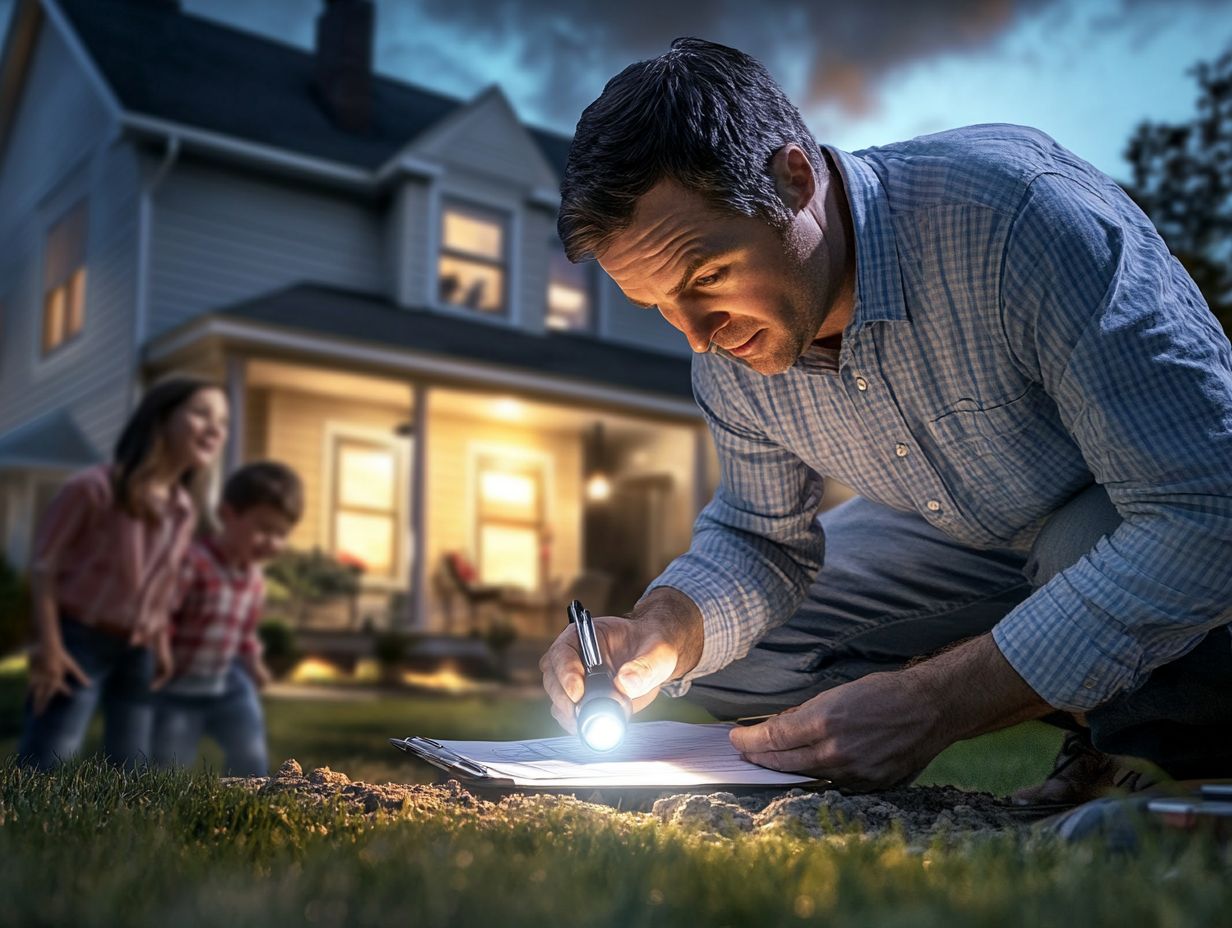
- A thorough inspection can reveal issues that save buyers money later.
- Sellers can fix problems before listing their home.
- Choose a qualified inspector for a reliable assessment.
What is a Home Inspection?
A home inspection is a careful inspection of a property that takes place before the closing date of a purchase agreement. Typically carried out by a licensed inspector, this assessment looks at different parts of the home, including the electrical system, plumbing, HVAC (Heating, Ventilation, and Air Conditioning) systems, and overall structural integrity.
This process yields invaluable insights, revealing significant defects and potential issues that could influence the property’s fair market value. Engaging in a home inspection is not just a formality; it’s a critical step in the real estate transaction that enables both buyers and sellers to negotiate repairs and gain a deeper understanding of the process of home inspections and the property’s condition.
Purpose and Process of a Home Inspection
The purpose of a home inspection is to thoroughly evaluate the condition of a property and pinpoint any potential issues that could influence your decision as a buyer. Understanding the importance of a home inspection for buyers ensures that health and safety standards are upheld throughout the purchasing process.
This comprehensive assessment typically includes essential home components such as the roof, plumbing, electrical systems, and HVAC systems. Inspectors carefully scrutinize these areas, searching for signs of wear, damage, or any non-compliance with safety regulations.
They may also assess the foundation for structural integrity and check for pest infestations that could present health risks.
Understanding these steps is key to your success! It enables you to make informed decisions and brings to light necessary repairs that could significantly affect the property s overall value and long-term livability.
Why Home Inspections are Important
Home inspections play a crucial role in the real estate journey, providing significant advantages for both buyers and sellers. They ensure health and safety, uncover potential issues that can serve as leverage during negotiations, and impact the home appraisal process, highlighting the key role of home inspections in real estate.
By grasping the nuances of property evaluation and its conditions, you enable yourself to make informed decisions and effectively sidestep costly surprises in the future.
Benefits for Buyers and Sellers
The advantages of home inspections are significant for both buyers and sellers. They foster transparency in the transaction and highlight the importance of window inspections in homes, opening doors for negotiations based on the findings.
For you, the buyer, this process unveils essential details about the property’s condition, enabling you to make well-informed decisions and sidestep potentially costly surprises down the line.
As for you, the seller, a pre-inspection offers a chance to tackle issues head-on. This showcases your commitment to maintaining the home responsibly to prospective buyers.
This proactive stance cultivates trust and increases the chances of a smoother transaction. By establishing realistic expectations, you can mitigate disputes that often arise later on, leading to a fairer assessment of the home’s value and positively influencing the purchase price.
A home inspection is your safety net in real estate, ensuring peace of mind! Start your home inspection journey today by learning more about the benefits of home inspections to protect your investment!
Common Issues Found in Home Inspections
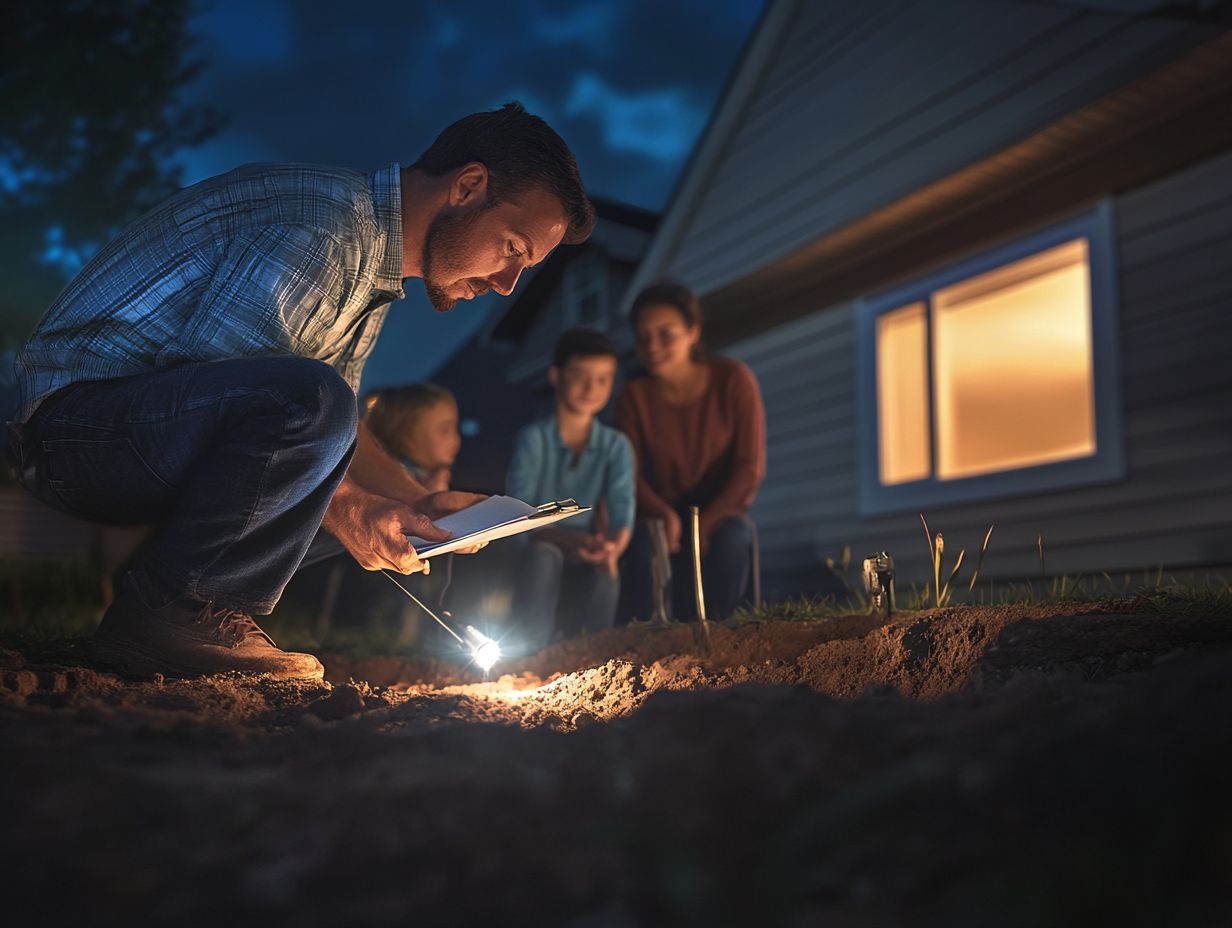
Common issues during home inspections can range from minor repairs to serious defects that might jeopardize your deal or lead to expensive repairs later.
Structural problems, electrical faults, plumbing issues, mold, and foundation troubles are among the most common safety hazards inspectors find. Don t overlook these concerns! Addressing them ensures the integrity and safety of the property you re considering.
Structural, Electrical, and Plumbing Problems
Structural, electrical, and plumbing issues are critical findings in a home inspection report. They pose serious safety hazards and significantly affect the property s overall condition and value.
These problems can be minor, like outdated wiring, or major, like foundation cracks that could lead to fire hazards. It s vital for buyers to understand the implications of these defects; unresolved structural issues can escalate repair costs down the line.
Plumbing deficiencies disrupt daily life and pose health risks due to potential water contamination.
Understanding these issues helps you make better decisions about your potential home, prioritizing safety and the long-term value of your investment.
How to Prepare for a Home Inspection
Preparing for a home inspection is crucial for both buyers and sellers for a smooth inspection process. This involves following a checklist and focusing on essential home maintenance tasks.
By ensuring all parts of the home are accessible and well-maintained, sellers allow inspectors to do a thorough check. Buyers should also prepare to address any questions or concerns during the inspection.
Tips for a Smooth Inspection Process
To ensure a seamless inspection process, prioritize home maintenance, guarantee accessibility to all areas, and maintain open communication throughout the inspection period.
Fixing minor repairs ahead of time is essential. Neglected issues can turn into bigger problems later. Make sure all utility systems like HVAC (heating, ventilation, and air conditioning) are functioning properly to enable the inspector to assess the property s condition accurately.
Organizing documentation related to previous repairs, warranties, or renovations can provide valuable insights into the property s history and readiness.
Taking a proactive stance by informing the inspector about specific areas of concern or recent improvements can greatly enhance your chances of a favorable outcome, minimizing potential hiccups during the inspection.
Choosing the Right Home Inspector
Selecting the right home inspector is essential for both buyers and sellers. A licensed inspector plays a vital role in ensuring the inspection process is thorough and dependable, making it crucial to understand the importance of home inspections.
When evaluating potential inspectors, consider key qualities such as their experience, certification from respected organizations like the American Society of Home Inspectors, and a solid understanding of home components, allowing them to effectively identify major issues.
Qualities to Look for in a Home Inspector

When selecting a home inspector, consider key qualities such as licensing, industry experience, and positive reviews from previous clients that highlight their reliability.
These factors ensure the inspector is well-versed in industry regulations and standards, significantly influencing the inspection outcome. Experienced professionals have a keen eye for detail, developed through years of hands-on exposure to various property types and potential issues.
Client testimonials offer insights into the inspector’s communication skills and thoroughness essential attributes that help you understand their findings and make informed decisions.
A well-rounded inspector not only identifies problems but also offers practical solutions and maintenance advice, enhancing the value of their service to you.
Ready to get started on your home inspection journey? Reach out to a qualified inspector today!
What to Do After a Home Inspection
After a home inspection, buyers and sellers should carefully review the inspection report. This helps you understand any issues and decide on the best way to negotiate repairs.
Both the buyer’s agent and the seller should work closely together. Focus on the main defects to ensure a smooth agreement before closing.
Negotiating Repairs and Next Steps
Negotiating repairs means closely reviewing the inspection report. Open communication between your agent and the seller is key to finding a solution that fits everyone.
Approach the conversation with a cooperative attitude. As a buyer, prioritize issues based on their severity and potential safety risks.
Sellers can gain by understanding the buyer’s viewpoint. Be open to negotiation and consider offering credits at closing or handling minor repairs.
Clearly communicate which repairs are essential and which can wait. This will help both parties have a productive conversation and lead to a successful resolution.
Frequently Asked Questions
What are the benefits of getting a thorough home inspection?
A thorough home inspection can provide numerous benefits, such as identifying potential safety hazards, detecting major structural issues, estimating repair and maintenance costs, and highlighting the importance of a thorough home inspection for both buyers and sellers.
Are there any risks associated with skipping a thorough home inspection?
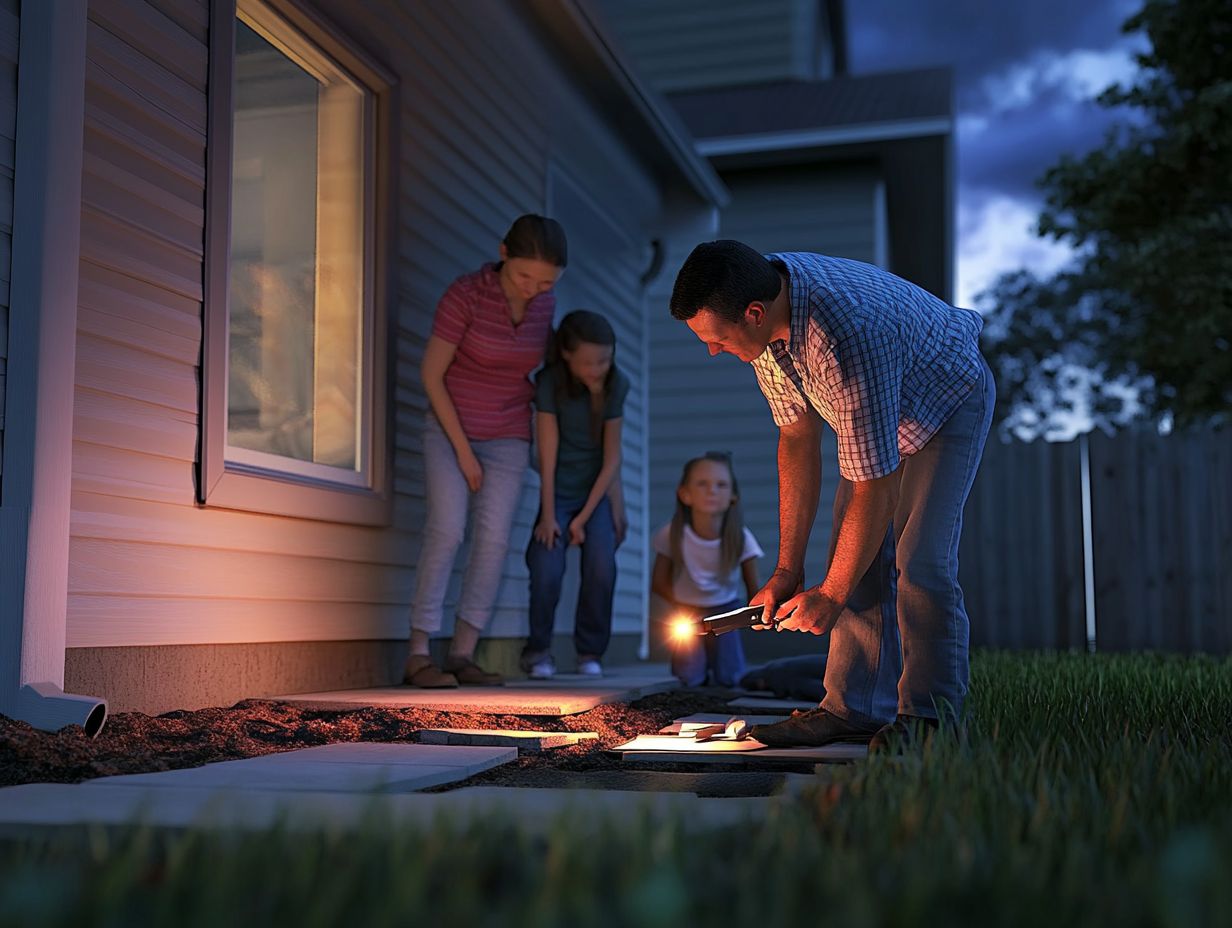
Yes, skipping a thorough home inspection can result in unexpected and costly repairs in the future. It can also lead to safety hazards that may put your family or property at risk.
Who should be responsible for conducting a thorough home inspection?
A professional and certified home inspector should conduct a thorough home inspection. They have the necessary expertise and tools to inspect the property and provide an unbiased report, which is crucial for understanding the need for home inspections.
What areas of a home should be included in a thorough home inspection?
A thorough home inspection should cover all accessible areas of a home, including the roof, exterior and interior walls, foundation, electrical systems, plumbing, heating, ventilation, air conditioning (HVAC) systems, and major appliances.
Can a thorough home inspection help with negotiating the price of a home?
Yes, a thorough home inspection report can provide valuable information that can be used to negotiate the price of a home. If major issues are found, buyers can ask for repairs or a price reduction to cover repair costs.
How often should a thorough home inspection be done?
Make it a point to schedule a home inspection every 3-5 years to stay ahead of potential issues! Regular inspections help identify problems before they become major concerns.

